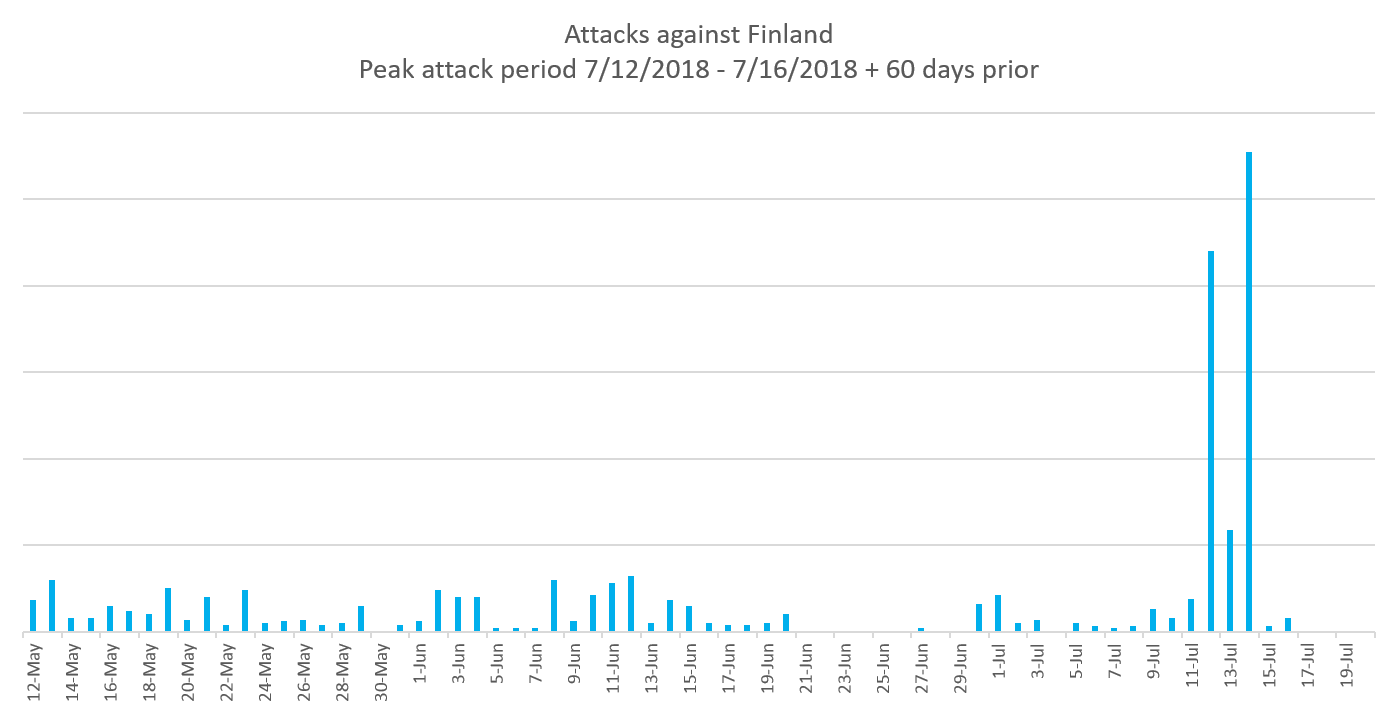One of the largest weaknesses in our electronic infrastructure is poorly secured IoT-devices exposed for ill-intentioned hackers. Allegedly these devices were the targets of Chinese hackers during the Trump-Putin summit in Helsinki in July.

Over the recent years there has been a increasing focus on the vulnerabilities in the growing technological environment which we have surrounded us with; DDoS attacks, phishing, spear phishing, malware, man-in-the-middle attacks, ransomware, spyware, leaks, and lazy programming compromises the foundation of out digitalized society.
But one of the lesser known vulnerabilities – and arguably one of the most critical – is the poor security the “things” surrounding us relies on – the “Internet of Things”.
And during the Putin-Trump Summit in Helsinki in July, several IoT-devices were attempted hacked by Chinese hackers, according the it-security research company F5 Labs.
Internet of (unsecure) Things
The Internet of Things (IoT) is a broad term referring to any unique or identifiable object in an internet-based environment; it can be anything from your electronic fridge controllable by your smartphone to the router supplying your household with internet.
And often these devices have little to no security, leaving them completely exposed to whoever may want to access them. The website Insecam is a good example of this, collecting the feeds of the world’s unsecured security cameras.
China!
And during the Putin-Trump Summit in Helsinki, F5 Labs registered an enormous spike in attempted hacking of these devices, as shown by the graph below.

F5 Labs writes that the majority of the attacks were the so-called “brute force” attacks where hackers repeatedly tries an enormous amounts of passwords until they gain access to the device. They had no way of proving that the hacks were state sponsored.
High-profiled political meetings like the Putin-Trump Summit has shown to cause a peak in attacks, for example shown at the Trump-Kim Summit in Singapore in June. In this case the majority of attacks were of Russian descent but shared many similarities to the Chinese hacks in Helsinki.

